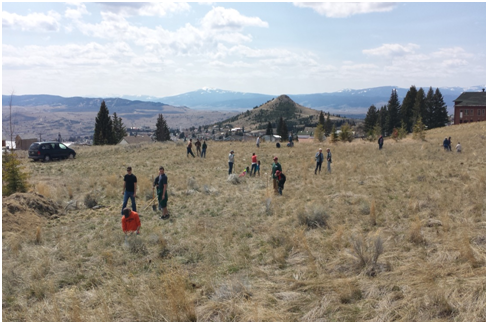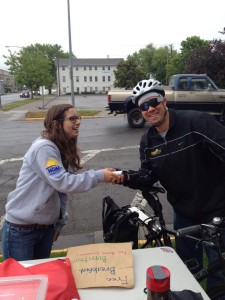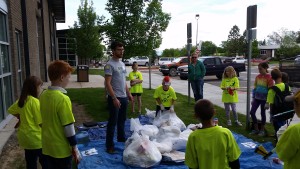Read about Seth’s educational activities in Butte;

Well I am three quarters through our term as an Energy Corps member here in Montana. Living here and working here has been one of the greatest experiences of my life. What has made this experience great are the multiple projects I have contributed to which has had an impact (direct and indirect) in the local community and of course the people I have had the pleasure of meeting and working with. My recent work involved working in the community teaching children and adults about energy efficiency and renewable energy practices related to farming and gardening. My biggest event was putting on Earth Week. This was the first time an event like this was put in place to celebrate Earth Day here in Butte. The goal was to put on five different events during the week of April 22nd. I was able to coordinate three events in order to attract the community in learning and participating on Earth day. For the first event I was able to coordinate with the MSU Butte Extension office in order to acquire over 400 trees. The event was to have community members of all ages come out and plant trees in the Walkerville reclamation site to kick off Earth week and to honor Arbor Day. We had over 50 people come out to volunteer where we planted 420 trees.

The second event was a community held discussion on climate change and global warming. This event was less successful with only two people showing. The final event, we presented to 3rd and 6th graders at an elementary school about Earth day and we had each class plant 15 trees for a total of 30.
Now that I have discussed the concept of Earth week let me discuss about the successes, failures, and challenges. First off this event was a great success in terms of implementing a theme like this for Earth day. The amount of volunteers we had alone for the first event was amazing. It was so good; Energy Corps and the MSU Butte extension office are partnering to make this a yearly event. Another success and great feeling from this was having the students participate in planting trees and learning about the meaning of Earth day. Now the challenge of doing this was of course the planning. Earth day is April 22nd; I started planning at the end of February and I was only able to put on these three events. I wanted to actually have another two events where we had the community pick up trash in the city. The second was to have a celebration event to wrap up the week and host it in the city. I spent a month trying to coordinate cooperation with the city of Butte since they host a yearly event where they pick trash. I also wanted to partner with the city to have support to put on the celebration event. It turned out this cooperation didn’t happen but made the contacts to try and pursue something like this in the future. As for the failures go, there was only one, the lack of attendance at the community discussion on climate change. Now we all know this topic is very hot to address, it is what divides families at dinner. I take full responsibility for expecting the community would be involved in this topic as other communities I worked in. Out of this failure was an educational insight. My goal is to work with the community closely this summer to engage people and see what they would like to discuss even maybe reframing the name of this topic. I want to leave on this note, don’t be afraid of implementing change and planning large community events. These are linked to creating grassroots movements and educational awareness in the local community. It is also a great way to build recognition in the community and form useful partnership for future events.
 Seth Marsala-Bell received his Master’s of Sustainable Development Practice from the University of Florida. He also has a B.A. in Anthropology from the University of Florida. He has worked with peasant farmers in Columbia studying their farming adaptation to climate change; food security; and the roles of men and women in agricultural production. Seth is serving at NCAT this year, researching energy inputs and outputs of hoop houses, building based agriculture energy implications, among other projects.
Seth Marsala-Bell received his Master’s of Sustainable Development Practice from the University of Florida. He also has a B.A. in Anthropology from the University of Florida. He has worked with peasant farmers in Columbia studying their farming adaptation to climate change; food security; and the roles of men and women in agricultural production. Seth is serving at NCAT this year, researching energy inputs and outputs of hoop houses, building based agriculture energy implications, among other projects.








